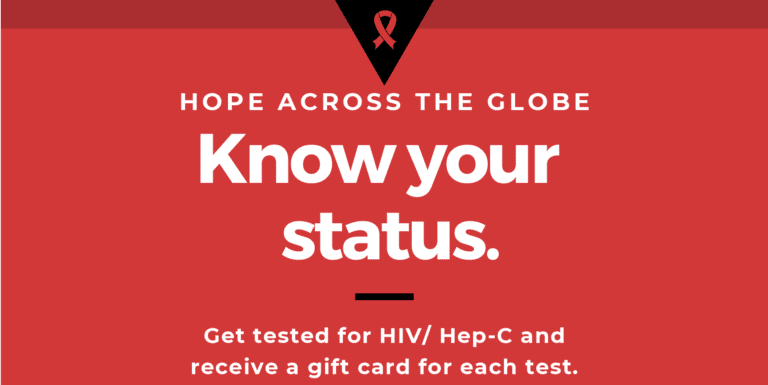Can You Get an STD If Both Partners Have No STD
Visiting an STD clinic is a crucial step in maintaining sexual health and preventing the spread of sexually transmitted diseases (STDs). Many people wonder if it is possible to contract an STD if both partners involved in sexual activity have no preexisting STDs. In this informative blog post, we will address this common concern and provide accurate information based on expert advice from reputable STD clinics. By debunking myths and shedding light on the complexities of STD transmission, we aim to provide a comprehensive understanding of the topic. It is essential to consult an STD clinic for professional guidance and to make informed decisions regarding sexual health.
Understanding STD Transmission
If both partners have no sexually transmitted diseases (STDs), the chances of acquiring an STD from sexual contact are extremely low. STDs are typically transmitted through sexual activity with an infected partner. However, it’s important to note that there are some factors that must be taken into account. To comprehend the possibility of acquiring an STD when both partners have no preexisting STDs, it is crucial to understand the complexities of STD transmission. Here are some key points to consider:
Asymptomatic Infections:
Many STDs can be asymptomatic, meaning that infected individuals may not display any noticeable signs or symptoms. Without symptoms, it can be challenging to detect an infection without proper testing. Common STDs, such as chlamydia, gonorrhea, and human papillomavirus (HPV), often present no visible signs, but they can still be transmitted.
Incubation Period:
STDs often have an incubation period, which is the time between exposure to the infection and the onset of symptoms. During this period, individuals can be contagious even without visible symptoms. For example, the incubation period for syphilis can range from 10 to 90 days, during which the infection can still be transmitted to a partner.
Inaccurate Testing:
While STD testing is generally reliable, it is not infallible. False-negative results can occur, especially during the early stages of infection or if testing is performed outside the appropriate window period. It is crucial to undergo testing at an STD clinic within the recommended time frame for accurate results. Testing too early or too late can lead to false reassurance or missed diagnoses.
Reinfection:
If one partner has an untreated or undiagnosed STD and the other partner has tested negative, there is a risk of reinfection. Even if both partners receive treatment, engaging in sexual activity before completing the entire course of treatment can lead to reinfection. Additionally, if one partner is exposed to a new infection from another source, it can be transmitted to the other partner.
The Role of STD Clinics
STD clinics play a vital role in promoting sexual health and preventing the spread of STDs. Here’s how they contribute to these efforts:
Expert Guidance and Education:
STD clinics employ healthcare professionals who specialize in sexual health. They provide comprehensive information about STDs, transmission risks, and prevention strategies. Visiting an STD clinic allows individuals to receive accurate and up-to-date advice tailored to their specific circumstances. The expertise of healthcare professionals can dispel myths and provide clarity on STD transmission.
Comprehensive Testing:
STD clinics offer a range of testing options to detect various infections. They ensure that individuals receive the appropriate tests based on their sexual history, symptoms, and potential exposure. Comprehensive testing includes urine tests, blood tests, and swab tests, depending on the specific STD being screened for. By providing comprehensive testing, STD clinic increases the chances of detecting infections and preventing their spread.
Window Period Awareness:
Healthcare professionals at STD clinics are knowledgeable about the window periods associated with different STDs. They can guide individuals on when to get tested based on their potential exposure. Understanding window periods is crucial to ensure accurate results and reduce the risk of false-negative outcomes. STD clinics can provide accurate information on the window periods of specific STDs, allowing individuals to make informed decisions regarding their testing schedules.
Partner Management and Contact Tracing:
STD clinics emphasize partner management to prevent reinfection and curb the spread of STDs. They provide guidance on notifying and testing sexual partners to ensure comprehensive treatment and reduce the risk of ongoing transmission. STD clinics can perform contact tracing to identify individuals who may have been exposed to an STD and offer appropriate testing and treatment. This approach helps break the cycle of transmission and ensures that both individuals and their partners receive the necessary care.
Treatment and Counseling:
In addition to testing, STD clinics offer treatment options for diagnosed infections. Healthcare professionals prescribe appropriate medications and provide guidance on adherence to treatment plans. Counseling services are also available to address concerns, provide emotional support, and promote healthy sexual practices. STD clinics offer a holistic approach to sexual health, providing medical treatment as well as psychological support.
Prevention Strategies and Communication
Preventing the transmission of STDs requires proactive measures and effective communication. Here are essential strategies to consider:
Consistent and Correct Condom Use:
Using condoms consistently and correctly during sexual activity is a highly effective way to reduce the risk of STD transmission. Condoms act as a barrier, preventing direct skin-to-skin contact and reducing the likelihood of transmission. It is essential to choose the right type of condom and use it every time you have sex.
Honest and Open Communication:
Maintaining open and honest communication with sexual partners is crucial. Discussing sexual health, previous STD testing, and any concerns about potential exposure fosters trust and allows for informed decision-making. Encouraging partners to visit an STD clinic together can promote shared responsibility and proactive health management. Open communication helps individuals assess their risk factors and make informed choices regarding their sexual health.
Regular STD Testing:
Regular STD testing is essential, even if both partners have tested negative in the past. As discussed earlier, asymptomatic infections and the potential for reinfection make regular testing an integral part of responsible sexual health management. STD clinics can provide guidance on recommended testing frequencies based on individual circumstances. Regular testing ensures early detection, timely treatment, and the prevention of further transmission.
Vaccinations:
Some STDs, such as human papillomavirus (HPV) and hepatitis B, can be prevented through vaccinations. Discussing vaccination options with healthcare professionals at an STD clinic is essential to protect against these infections. Vaccinations can significantly reduce the risk of acquiring specific STDs and contribute to overall sexual health.
Safe Sex Practices:
Practicing safe sex goes beyond condom use. It also includes limiting sexual partners, understanding the sexual history of partners, and avoiding high-risk sexual activities. Safe sex practices reduce the likelihood of exposure to STDs and promote responsible sexual behavior.
Conclusion:
Visiting an STD clinic is an essential step in understanding sexual health, receiving accurate information, and preventing the transmission of STDs. While it may seem logical to assume that both partners are safe from STDs if they have no preexisting infections, the complexities of STD transmission indicate otherwise. Asymptomatic infections, incubation periods, inaccurate testing, and the risk of reinfection emphasize the importance of seeking professional advice from reputable STD clinics. Hope Across The Globe encourages individuals to prioritize their sexual health, seek information from reliable sources, and practice preventive measures to protect themselves and their partners. By staying informed, proactive, and responsible, individuals can navigate their sexual health journey with confidence and reduce the risk of acquiring or transmitting STDs.






